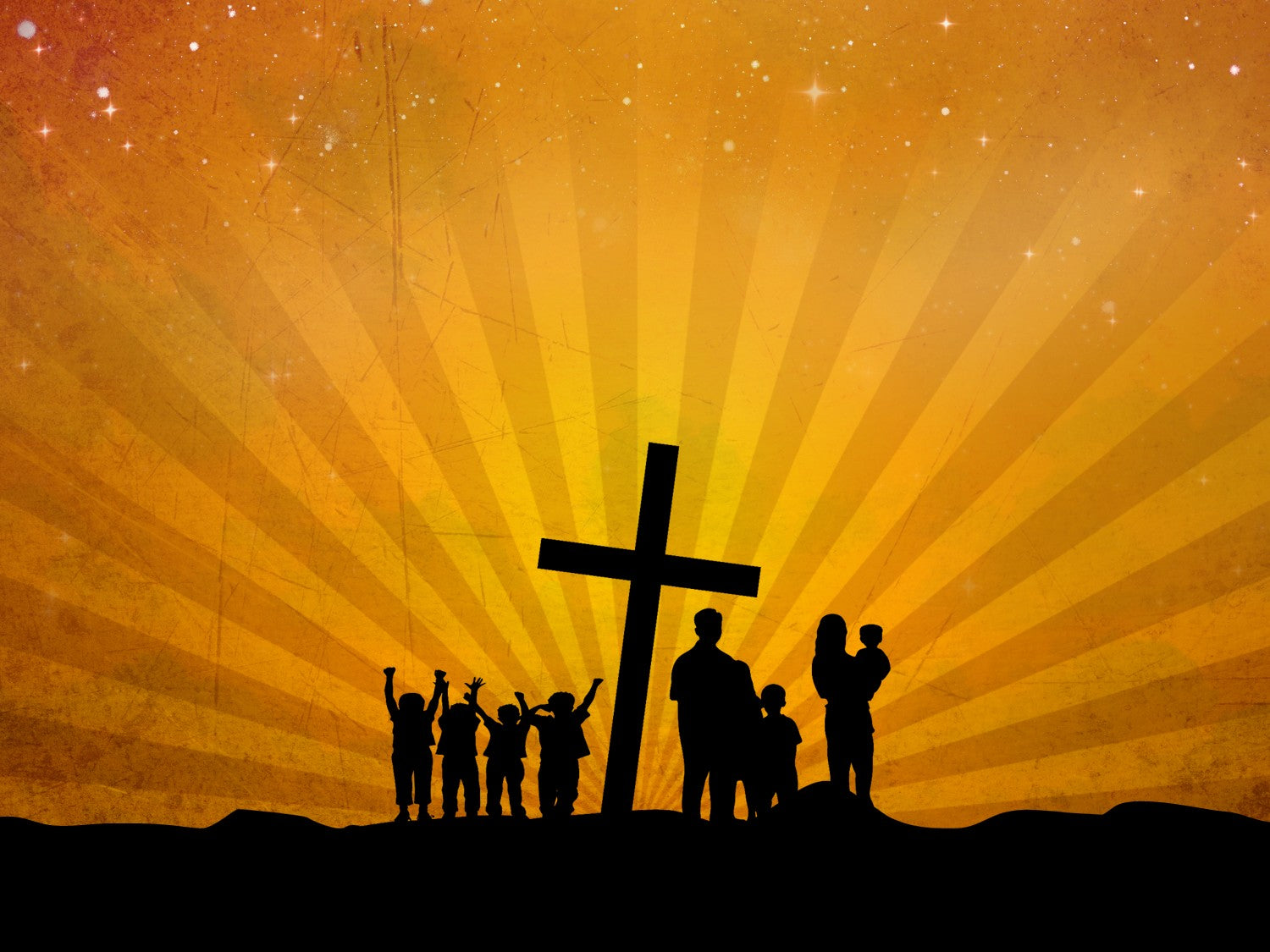Welcome To Team Jesus!
If you are new to Christianity or interested in the Christian Faith, here are the basic facts about our Faith and what we believe.

Jesus.
Followers of the Christian religion base our beliefs on the life, teachings, and death of Jesus Christ. Christians believe in one God that created heaven, earth and the universe.
The belief in one God originated with the Jewish religion. Christians believe Jesus is the “Messiah” or savior of the world. We also believe that he is the son of God.
Jesus was born in a manger in Bethlehem to Mary, a virgin at the time of conception, and Joseph, her husband. Mary was visited by the angel Gabriel and told she would conceive a son and he would be the Messiah.
Jesus was crucified on a cross. His death made salvation and forgiveness of sins possible for all. On the third day after his crucifixion, Jesus arose from the dead. His resurrection is celebrated on "Easter" (Resurrection Sunday), which is considered Christianity’s most important holiday.
Salvation.
After Jesus’ crucifixion and resurrection, God’s presence remained on earth in the form of the Holy Spirit to be a comforter to all. Salvation can only be obtained by believing that Jesus was sent by God to forgive the sins of every human, and to confess those sins to him.

The Bible.
Written under the supernatural guidance of the Holy Spirit by laymen and scholars, commoners and nobility, the Bible is as unique as it is profound, containing 66 ancient books that have shaped laws, influenced culture and inspired billions to faith over three millennia.
Interpretations of the Bible and the practices of each church vary by denomination, but the belief in one God and Jesus as the Messiah is central to all Christians.
History.
Christian beliefs date back thousands of years before Christ.
Many prophets predicted the coming of Christ according to Christian belief. Many theologians believe that Jesus was crucified between 30 and 33 AD. The first Christians were Jews who came to believe Jesus was the Messiah. Gentiles (non-Jews) also made up a large majority of its followers, as is the case today.
392 AD - Christianity becomes the official religion of the Roman Empire.
1054 - Disputes about the Pope’s role and authority cause a split in Christianity between the Roman Catholic Church and the Eastern Orthodox Churches. The split still exists today.
1517 - Martin Luther, a German monk, starts a movement called the Reformation after he criticizes certain church practices as well as the supremacy of the pope. This divides Western Christianity into the Roman Catholic Church and Protestantism.

The Religions.
Christianity is based on the life and teachings of Jesus Christ and is approximately 2,000 years old. Its largest groups are the Roman Catholic Church, the Eastern Orthodox churches, and the Protestant churches, and its sacred text is the Bible. Over the centuries, Christianity grew in numbers as it spread around the world, often through missionaries and colonizers. It has more than 2B followers.
The second most widely practiced religion is Islam, with an estimated 1.8 billion followers worldwide. It started in Mecca (a city in modern-day Saudi Arabia) in the 7th century CE and was spread by the Prophet Muhammad (570–632 CE), who followers of Islam believe to be God’s ultimate prophet. Islam states that the teachings of God, who is known as Allah, were written down in a holy book known as the Qurʾān, which is the faith’s spiritual text. Most Muslims belong to on
Hinduism, with an estimated 1.1 billion followers, is the world’s third largest religion and also one of the oldest, with beliefs and practices that date back at least as far as the 1500s BCE. Hinduism is practiced primarily in India (where approximately 80 percent of the population identifies as Hindu), Nepal, and Indonesia. Little is known about the founding of Hinduism, but its teachings deeply influence almost all aspects of believers’ lives. In recent years certain aspects of Hinduism have become popular in the West, such as the practice of yoga, as well as the use of chakras (energy points found throughout the body) to identify and treat illness.
The fourth most widely practiced religion is Buddhism, with approximately 500 million followers worldwide and more than 250 million in China alone. Based on the teachings of Gautama Buddha, the religion was founded in India nearly 2,500 years ago. There are two main branches of Buddhism: Theravada Buddhism and Mahayana Buddhism. Tenets of Buddhism include a vow of nonviolence and an adherence to ethical behavior in all aspects of life.
Stats provided by Britannica Online.
